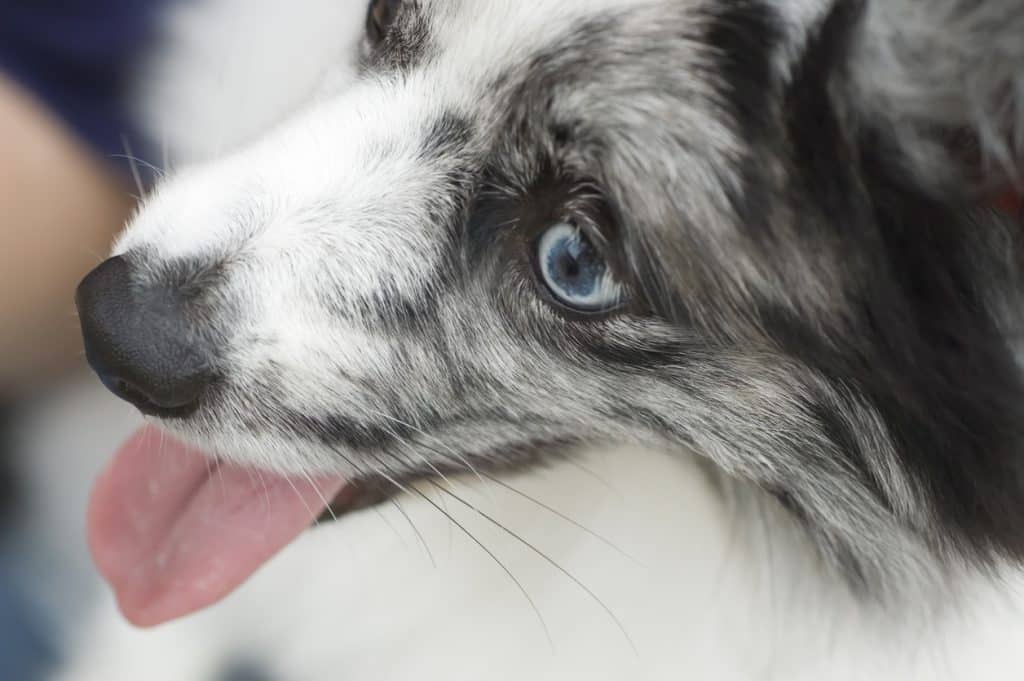Our Ophthalmology team work in partnership with the British Veterinary Association (BVA), the Kennel Club (KC) and the International Sheep Dog Society (ISDS) to provide a screening service for dogs who are being considered for breeding. This service is to check for possible inherited eye disease.
The Scheme is open to all dogs and breeds including crossbreeds and non-Kennel Club registered dogs.
Breeds that commonly experience greater risk of eye disease include:
- Border Collie
- Cocker Spaniel
- English Springer Spaniel
- Golden Retriever
- Labrador Retriever
- Miniature Schnauzer

Hereditary eye disease
There are many types of hereditary eye disease. Congenital diseases are conditions that exist from birth or soon after birth, whereas non-congenital conditions develop later in life.
Many of these conditions can have serious effects on health and welfare, causing pain, blindness, or the need for lifelong medication. This should be taken into consideration when breeding dogs.
Eye examinations are carried out by a specially trained ophthalmologist who is recognised by the BVA. The eye exam should be completed before a dog is used for breeding. We also recommend that regular eye exams are performed as the onset of eye diseases can vary between different breeds. Also, that dogs used for breeding should have a final check after 8 years of age to ensure there is no indication of late onset inherited disease and show evidence of a clear breeding line.
Litter screening
A separate Litter Screening Eye Examination service is available when puppies are between 5 and 12 weeks old. All puppies must be microchipped before the examination.
For more information on both the service please email [email protected]
Our BVA recognised ophthalmologist
Emily Jeanes
BVSc MVetMed MVetSci BSAVA PGCert SAOphthal DipECVO MRCVS
RCVS Specialist in Veterinary Ophthalmology
EBVS® European Specialist in Veterinary Ophthalmology
